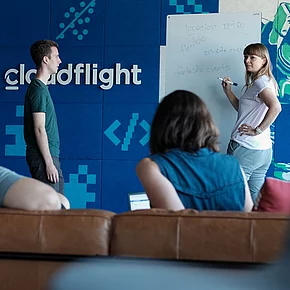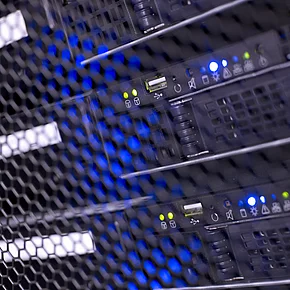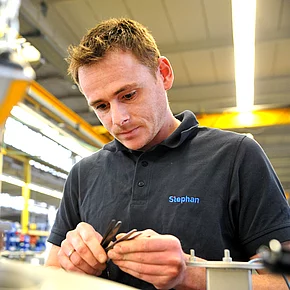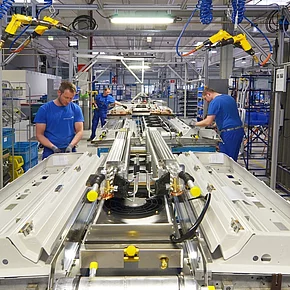Profitability significantly improved through operational synergies.
Interview with Torsten Grede, spokesman of the board of management of DBAG
DBAG has become known as an investor with special expertise in mechanical and plant engineering, for automotive supply and for industrial services. What made you decide to invest in a company like Schülerhilfe at the time?
It is correct: At that time, we were still primarily interested in participating in well-positioned medium-sized companies with industrial business models. But the range of such investments is not enough to invest the funds from our now larger funds.
That is why the range of business models in our portfolio has grown. What is important is that our criteria remain - development potential based on a good market position and entrepreneurial management, to name just the two most important.
At the time we started, Schülerhilfe had around 80,000 customers who were taught at 1,050 locations. 40 percent of these locations were operated by Schülerhilfe themselves; the rest were franchisees. At that time, Schülerhilfe was Germany's third largest franchise model after the number of operated franchise units.
The market analysis showed positive fundamental market trends for us. For example, an increasing willingness of many students and parents to spend additional time and money on a good school leaving certificate. It also showed that institutional tuition gained market share over the grey market. Schülerhilfe was able to consolidate the market.
How did you manage to familiarize yourself with a completely new industry for DBAG and discover potential for added value there?
On the one hand, our company and our team have extensive experience in the investment business. On average, members of the investment team have spent more than ten years analysing business models, assessing development potential and accompanying change processes.
Achievements during DBAG’s investment
Revenues increased by almost 10 per cent annually.
Market share increased from around seven to eleven per cent.
EBITDA improved by almost 13 per cent annually.
125,000 schoolchildren take advantage of the student aid program.
In addition, we naturally benefit from our excellent industry network with such opportunities, which helped us to gain a sound understanding of the business model of student aid relatively quickly.
What exactly did DBAG see as the growth potential for Schülerhilfe?
The robust business model, given the low correlation to macroeconomic developments and low operational risks, as well as the leading market position in an otherwise very fragmented market, made the student aid an interesting investment for us.
What was the investment case for the further development of Schülerhilfe?
There were several points where we saw potential for appreciation. For example, the number of new customers was significantly related to the marketing budget. Due to the size and the associated financial means, Schülerhilfe was in a comfortable position to continuously expand its market share.
The business model was also characterized by low additional costs for each additional student and enabled operational synergies, which resulted in a high additional margin advantage.
At the same time, we also saw great potential for entering new markets. Primarily adult education and online instruction are to be mentioned here. The buyback of franchise centres provided another continuous source of sales and earnings growth.
How have the changes initiated been reflected in the company's figures?
The number of new customers rose by around four to six percent per year. Sales increased to more than 60 million euros in 2017. Profitability improved so that the operating result almost doubled.
The business model generates a lot of free funds. This enabled a quick repayment of debt and opened the possibility of refinancing.
What ultimately determined the timing of the sale? After all, you got back 3.9 times the amount invested.
Not only we, but also the management of Schülerhilfe received several purchase offers without being asked.
Against the background of this high level of interest, the very attractive market dynamics and the favourable trading conditions, a refinancing and a divestment process were initiated in March 2017. Finally, we were able to choose from a large number of interested parties, mainly financial investors, but also a strategic investor. The offers very attractive and that is why we decided to sell.


 Newsletter
Newsletter 




 Contact
Contact  Downloads
Downloads  Newsletter
Newsletter 






